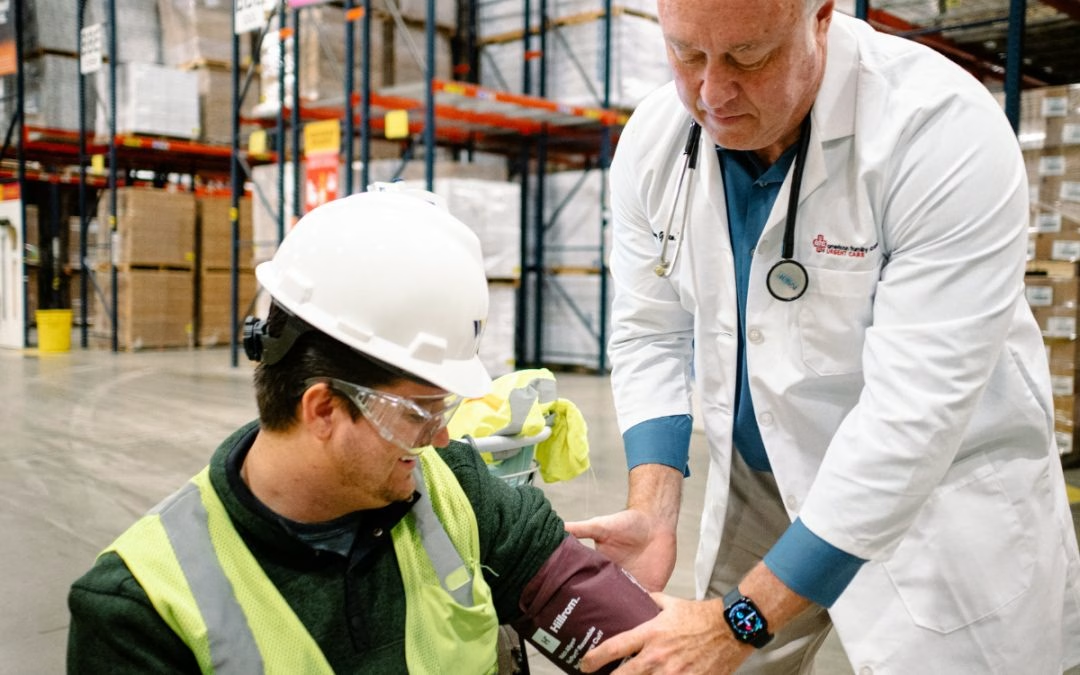
Autumn in Charlotte is a wonderful time for families to enjoy local fall activities like pumpkin patches, hayrides, and corn mazes. But with fun gatherings often comes increased exposure to seasonal illnesses, including COVID-19. If your child has been exposed to the virus, it’s natural to worry and wonder when symptoms might start to appear. Understanding the typical timeline for COVID-19 symptoms and knowing what to look out for can help you make informed decisions about your child’s health and take steps to protect those around you.
In this article, we’ll cover the basics of COVID-19, the symptoms to look for in children, when symptoms typically appear, and when to seek medical care at our clinic. Staying informed can help you respond quickly and effectively if your child starts feeling unwell.
What Is COVID-19?
COVID-19 is a respiratory illness caused by the SARS-CoV-2 virus, which emerged in late 2019 and quickly spread worldwide. Although COVID-19 often causes mild symptoms in children, it can still lead to serious illness, especially in those with underlying health conditions or weakened immune systems. COVID-19 primarily spreads through respiratory droplets when an infected person coughs, sneezes, or talks, making it highly contagious in close-contact settings like classrooms and playgrounds.
While vaccines have reduced the severity of illness for many, cases still persist in communities, and new variants periodically emerge. It’s important to monitor for COVID-19 symptoms, especially following exposure, so you can take prompt action if necessary.
When Do COVID-19 Symptoms Appear?
The period between exposure to the virus and the onset of symptoms is known as the incubation period. For COVID-19, the incubation period generally ranges from 2 to 14 days, with most symptoms appearing between 5 to 6 days after exposure. During this time, your child might not exhibit any signs of illness but could still be carrying the virus, which is why monitoring their health is essential if you know they’ve been exposed.
Common COVID-19 Symptoms in Children
COVID-19 symptoms can vary widely among children. Some children may experience only mild symptoms, while others may develop more severe respiratory or systemic issues. Symptoms of COVID-19 in children are similar to those in adults but can sometimes appear more subtly or be mistaken for other common illnesses like colds or the flu. Here are some of the most common symptoms to watch for:
- Fever or chills
- Cough
- Shortness of breath or difficulty breathing
- Sore throat
- Congestion or runny nose
- Fatigue
- Muscle or body aches
- Headache
- Nausea or vomiting
- Diarrhea
It’s important to remember that these symptoms may vary depending on the COVID-19 variant and the child’s overall health. Some symptoms might appear gradually and worsen over time, while others may remain mild or even go unnoticed.
COVID-19 vs. Other Seasonal Illnesses
Distinguishing COVID-19 from other seasonal illnesses can be challenging since many symptoms overlap with those of the flu or common cold. However, a new or sudden loss of taste or smell is a hallmark symptom that is more commonly associated with COVID-19 than with other respiratory illnesses. Additionally, while a cough and fever are common in both COVID-19 and the flu, COVID-19 tends to last longer and can sometimes lead to more severe complications in children.
If you’re uncertain, testing is available and can help confirm a diagnosis. At AFC Urgent Care Southwest Charlotte, we offer rapid COVID-19 testing, so you can quickly determine if your child has been infected and take steps to prevent the spread of the virus.
When to Visit AFC SW Charlotte
In many cases, children with mild COVID-19 symptoms can recover at home with rest, fluids, and supportive care. However, some symptoms may indicate that your child needs immediate medical attention. If you notice any of the following, seek emergency care right away:
- Trouble breathing
- Persistent pain or pressure in the chest
- New confusion or inability to stay awake
- Pale, gray, or blue-colored skin, lips, or nail beds (depending on skin tone)
These symptoms could indicate a serious case of COVID-19 or another health complication, so don’t hesitate to seek help. AFC Urgent Care Southwest Charlotte is here to provide fast, compassionate care for your child if you have any concerns about their symptoms or condition.
Preventing the Spread of COVID-19 After Exposure
If your child has been exposed to COVID-19, there are steps you can take to minimize the risk of spreading the virus to others:
- Limit close contact: Keep your child at home and avoid close contact with people outside your household for at least five days.
- Wear a mask: Encourage your child to wear a well-fitting mask around others, especially if symptoms develop or if your child is in a high-risk setting.
- Practice good hygiene: Reinforce frequent handwashing and proper respiratory hygiene, like covering coughs and sneezes.
- Monitor symptoms: Keep a close eye on any changes in your child’s health, particularly within the first week after exposure.
Knowing when to expect COVID-19 symptoms and understanding what signs to watch for can give you peace of mind as you care for your child. By staying informed and taking preventive steps, you can help protect your child, your family, and the community. If your child does begin to show symptoms or if you have concerns about their health, AFC Urgent Care Southwest Charlotte is here to assist with COVID-19 testing and care.
This fall, as you and your family enjoy all the season has to offer, remember that health and safety come first. If you have questions about COVID-19, flu prevention, or other seasonal illnesses, visit us at AFC Urgent Care Southwest Charlotte—we’re here to support your family’s health throughout the season and beyond.


